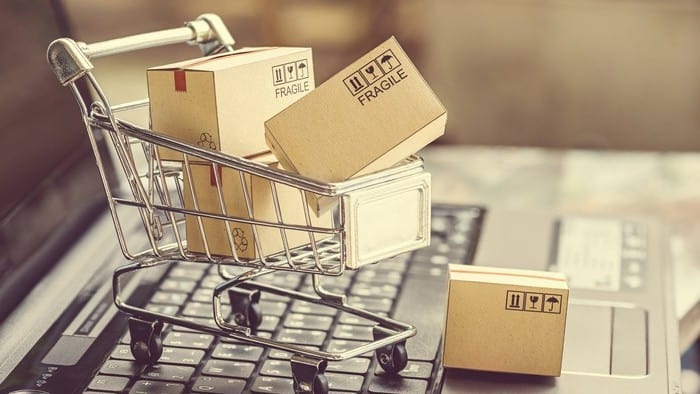This article was originally published on Fool.com. All figures quoted in US dollars unless otherwise stated.
The FAANG stocks – Facebook, Amazon.com, Inc (NASDAQ: AMZN), Apple, Netflix, and Google parent Alphabet Inc (NASDAQ:GOOGL)(NASDAQ: GOOG) – have now all reported second-quarter 2020 earnings. One fact is abundantly clear: A new era dominated by these tech giants is here, and it isn't going away anytime soon.
Barring the advice to just buy them all, which is the better buy right now?
Amazon is a standout winner that – even valued at over $1.5 trillion – continues to find new ways to separate itself from the pack. The pandemic is driving a surge in e-commerce demand. Meanwhile, it could be argued that Google is the biggest loser compared to its tech titan peers, posting its first-ever quarterly revenue decline. Right at the moment, it's easy to argue Amazon is by far the better buy, but a few items bear consideration first.
All-out growth versus incredibly high profit margins
Amazon and Google will both benefit from long-term secular growth trends: Amazon from the migration to online retail (shockingly, the latest Census Bureau numbers imply less than 20% of retail purchasing happens online in the U.S.), and Google from the switch to internet advertising (half of ads were digital in 2019 for the first time, and the percentage is expected to keep rising).
But with COVID-19 rapidly reshaping the global economy, e-commerce is the winning investment theme of the moment. Amazon's overall revenue surged 40% in Q2 2020 to $88.9 billion, driven by 43% growth in North American sales, slightly offset by a gain of "only" 38% internationally and a 29% gain for the Amazon Web Services (AWS) cloud computing platform. Meanwhile, Alphabet revenues fell 2% from a year ago to $38.3 billion, with Google, YouTube, and partner ad sales falling 9%, offset by Google Cloud's 43% advance (as it slowly narrows the gap with AWS) and "other" revenue (YouTube subscriptions, Play app store, hardware, etc.) increasing 26%.
Thanks to Amazon's top-line momentum, its stock is up 72% this year to Alphabet's 10% gain. Amazon predicted 24% to 33% growth in the third quarter, with no outlook provided by Google. Clearly Amazon wins the momentum stock challenge, but the amount of cash a company can hang onto is also important.
The bulk of Amazon's sales comes from retail and related services, and operating profit margins are far lower here than in other areas of the tech world. Total operating profit in the quarter was $5.84 billion (good for an operating margin of 6.6%), with $3.36 billion of that coming from AWS alone. Google, on the other hand, posted an operating profit of $6.38 billion (a 17% operating margin). Granted, both of these figures factor in the large sums of money Amazon and Google spend on disruptive investments to foster future growth and innovation. Still, when using free cash flow (revenue minus only cash operating and capital expense outflows), Amazon's $19.4 billion over the last 12 months is far smaller than Google's $31.2 billion.
In terms of valuation, that makes Alphabet stock something almost resembling a value -- at least for a high tech name. Based on the current market cap of $1 trillion, Alphabet trades for 32.1 times trailing 12 month free cash flow to Amazon's 81.5. The relative value on Google counts for something.
Don't ignore the war chest
What does free cash flow matter? It's the sum of cash that gets added to (or subtracted from) the balance sheet at the end of each quarter. And it matters a great deal, especially in the next decade as big tech gets bigger and needs to find new projects to keep growth going.
At the end of Q2, Google had $120 billion in cash and marketable investments on its balance sheet, and a paltry sum of debt at just $4.55 billion. Amazon is no slouch here with $55.0 billion in cash and marketable securities, but long-term debt of $23.4 billion. Google's war chest wins, against Amazon or any other mega-tech name out there.
Put another way, Google is one of the most deep-pocketed organizations on the planet and its lead is growing. That too counts for something when deciding which stock is a buy. For now, Amazon looks like the better buy of the moment, with e-commerce expanding at a torrid pace and the company carrying the torch of world-shaping disruption. But over the long term, don't for a second write off Google.
This article was originally published on Fool.com. All figures quoted in US dollars unless otherwise stated.









